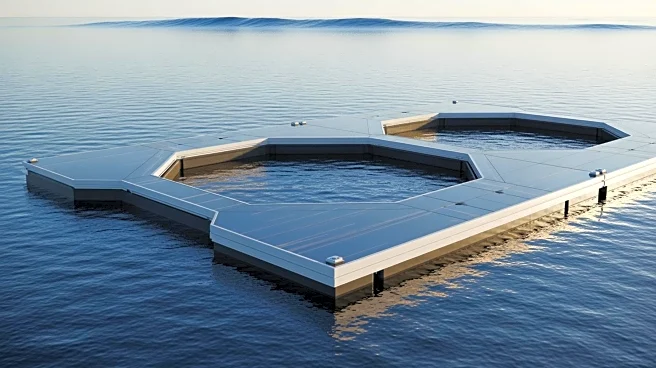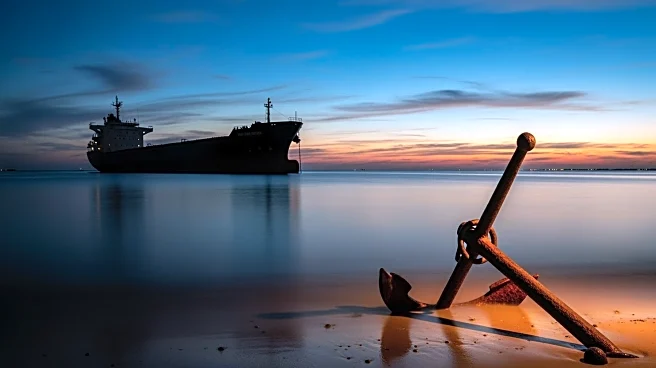What's Happening?
China's Jiangsu Dajin Heavy Industry Co. has delivered a groundbreaking vessel, the Zhanjiang Bay 1, designed for offshore aquaculture. This DP-capable, ship-shaped, cage-type aquaculture vessel is set to operate off the coast of Naozhou Island, Zhanjiang.
The vessel aims to expand aquaculture into deeper waters, featuring 12 production bays with a targeted output of 2,000-5,000 tonnes of fish. The ship is equipped with all-electric propulsion and a dynamic positioning system, allowing it to move to sheltered waters during storms. This development is part of China's initiative to enhance domestic fish production without depleting local fisheries, contributing to a multi-billion-dollar 'blue pastures' industry.
Why It's Important?
The introduction of the Zhanjiang Bay 1 represents a significant advancement in sustainable aquaculture practices. By moving fish farming operations offshore, China aims to reduce pressure on domestic fisheries and increase fish production sustainably. This innovation could set a precedent for other countries looking to balance economic growth with environmental conservation. However, the deployment of such large-scale fish farms has raised concerns in regions like the Yellow Sea, where similar structures have been deemed threats to maritime safety by South Korea. The vessel's ability to operate far from disputed waters may mitigate some geopolitical tensions, but the broader implications for international maritime relations remain significant.
What's Next?
As the Zhanjiang Bay 1 begins operations, monitoring its impact on local ecosystems and fish populations will be crucial. The success of this vessel could lead to further investments in offshore aquaculture, potentially transforming global fish production practices. Stakeholders, including environmental groups and neighboring countries, will likely keep a close watch on the vessel's operations to ensure compliance with international maritime and environmental standards. Additionally, China's continued expansion in this sector may prompt other nations to explore similar technologies, potentially leading to increased competition and innovation in the aquaculture industry.
Beyond the Headlines
The deployment of the Zhanjiang Bay 1 highlights the growing trend of utilizing advanced technology to address food security and environmental challenges. This vessel's design and capabilities reflect a shift towards more sustainable and efficient aquaculture methods, which could have long-term benefits for global food supply chains. However, the ethical considerations of large-scale fish farming, including potential impacts on wild fish populations and marine biodiversity, will need to be addressed. As countries explore similar technologies, balancing economic interests with ecological preservation will be a critical challenge.














